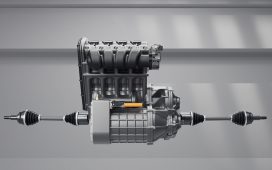Electric Vehicles are the future and there’s no two doubts it. EVs have started gaining immense popularity all over the world and especially India, where two wheeler and three wheelers are becoming quite popular among fleet owners lately. The increased adoption of EVs in countries worldwide makes it very clear that the fuel-based conventional alternatives currently available will soon go out of use and into fashion. Electric Two-wheelers are some of the most convenient and user-friendly vehicles available. Their adaptability far transcends the adaptability of Electric Cars. Here’s a look at multiple factors making Electric Two-wheelers the vehicle of the future:
The transition from Fuel based to Electric
Consumers have increased interest in transitioning from conventional fossil fuel-based vehicles to Electric Vehicles. In this trend, a very important factor is that in developing countries, two-wheelers are used much more than cars. The range factor also does not become a concern anymore as the average range of an electric scooter is up to 150km, which is more than sufficient for everyday use, even with extremely long commutes.
Furthermore, governments worldwide are heavily investing in EV charging infrastructure which allays the fears of people that they might run out of charge while driving and get stranded. The widespread use of electric two-wheelers in countries throughout the world will be far greater in number than Electric Cars, with developing countries taking the lead in this trend.
Even developed countries have adopted electric two-wheelers to make transport easier in crowded cities. According to the government, by 2030 the goal is to change the majority of the auto market towards electric automobiles with the sale of 22 million EVs.
Maintenance and Fuel Costs
In recent times, we have seen there has been an exponential rise in fuel costs due to many reasons. With EVs, the cost of charging the vehicle is exponentially less than filling a full petrol tank. Furthermore, environmental concerns are also playing a large part in the new rise of Electric Vehicles.
Furthermore, owning an electric vehicle is 60% cheaper than owning a fossil fuel-based vehicle over the entire lifetime of the vehicle bringing the cost down to only 12 paise per km. Since an EV doesn’t need regular maintenance like an oil change or engine tune-up, it has a lower total cost of ownership.
Government Incentives
In multiple countries, there has been a growing trend of offering consumers who choose to adopt Electric Vehicles subsidies on the vehicle, reduced road tax, etc. An example of this can be that the UP-State Government along with other states in India is offering a 100 % Reduction in road taxes for Electric two-wheeler vehicles. Some other programs offer the Faster Adoption and Manufacturing of Hybrid and Electric Vehicles in India (FAME II) program, which is a win-win for the industry and consumers. The plan’s beneficiaries, the customers, can enjoy lower prices and tax reductions.
Environmental Concerns
With a newer generation being very environmentally conscious, the uptake of Electronic Vehicles has increased significantly. This new generation that is more conscious than their predecessors is mainly young teens or people in their 20s that are in college or have just left college. This age group mainly drives two-wheelers for their convenience. The transition to Electronic Two Wheelers from fossil fuel-based alternatives is relatively easy as the two prices are quite similar.
Easy licensing option
It is easier to obtain a license for an Electric Vehicle than to license its fossil fuel-based counterpart. Vehicles with a top speed of 25 kilometers per hour or up to 250W are not required to be registered or licensed. They may be exempt from paying taxes and insurance, making them accessible to youngsters and older people. However, if the speed is too high, such EVs must register.
In addition to the considerations mentioned earlier, the wide variety of models on the market means that the cost of an electric two-wheeler can range anywhere from Rs 45K to 1.5 lakhs, which is not a huge outlay considering the newer models’ many desirable advantages over old petrol and diesel-based scooters. Furthermore, banks, NBFCs, and private leasing businesses have all begun offering attractive financing plans for customers who wish to buy an electric vehicle.
Overall, Electric Two Wheelers are the next revolution in terms of transport completely replacing fossil fuel-powered Two wheelers, and it would not be surprising if their demand surges vastly in the next few years. Its multiple benefits over the conventional petrol/diesel-based two-wheeler are far too many to discount. Suppose you are a new consumer who buys an electric two-wheeler over the conventional model. In that case, you will save your money via tax benefits and incentives and contribute to reducing vehicle pollution.
This article is authored by Udit Agarwal, CEO of Fujiyama E Scooters. All views are personal.








